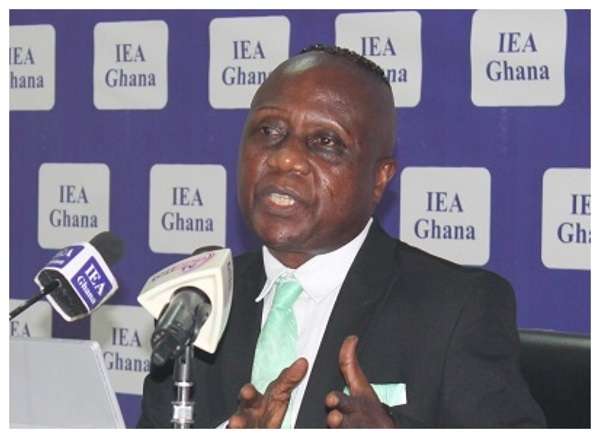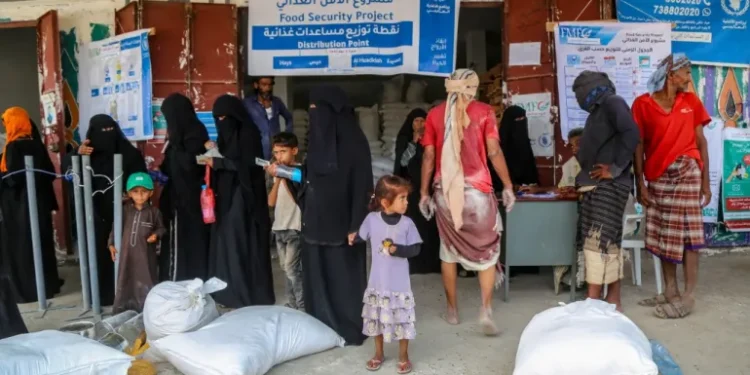Despite a marked reduction in inflation from its peak in 2022, Ghana continues to grapple with high inflation rates by international standards.
According to the Institute for Economic Affairs (IEA), while the decline in inflation is a positive development, the current levels still exert significant pressure on the cost of living in the country.
Ghana’s inflation rate has seen a substantial decrease over the past year, tumbling from a staggering 54.1% in 2022 to 20.9% in July 2024. This reduction marks the seventh consecutive month of declining inflation, a trend largely driven by base effects— the statistical phenomenon where the current inflation rate is compared to an unusually high rate from the previous year. Despite this progress, the IEA cautions that inflation remains elevated compared to global norms.
The impact of high inflation on the cost of living has been severe. Even as the inflation rate falls, the lingering effects of past price increases continue to strain households. Prices of goods and services, particularly food, remain significantly higher than they were before the inflation surge, affecting the purchasing power of Ghanaians and leading to widespread economic discomfort.
Fiscal Deficit and Debt Dynamics
Alongside inflation, Ghana’s fiscal deficit and public debt levels have also been areas of concern. The fiscal deficit, which was -12.0% of GDP in 2021 and -11.8% in 2022, has seen a notable decline, dropping to -3.6% in 2023. This improvement is largely attributed to the Domestic Debt Restructuring Programme (DDEP) and the suspension of external debt servicing, which have provided some relief to the government’s fiscal balance.
For 2024, the fiscal deficit is projected to remain relatively low at 4.7%, reflecting ongoing efforts to manage public finances more effectively. However, while the deficit reduction is a positive sign, the IEA warns that challenges remain, particularly in sustaining these gains without further fiscal consolidation measures.
Ghana’s public debt to GDP ratio is another critical issue. After rising from 79.2% in 2021 to a worrying 92.7% in 2022, the ratio declined to 82.9% in 2023. The International Monetary Fund (IMF) projects a slight reduction to 82.5% in 2024, but this level remains well above what is considered sustainable. High public debt continues to pose a risk to the country’s economic stability, as servicing this debt diverts resources away from essential development projects and social services.
Food and Non-Food Inflation Trends
A closer look at the components of inflation reveals that both food and non-food prices have seen declines, albeit from very high levels. According to the Ghana Statistical Service, food inflation dropped from 24.0% in June 2024 to 21.5% in July 2024, while non-food inflation also fell from 22.8% to 20.5% over the same period.
These figures indicate some easing in price pressures, but the reductions have not been sufficient to significantly alleviate the economic burden on households. Food inflation, in particular, remains a critical issue, as rising prices for basic necessities continue to strain family budgets. This persistent high cost of living underscores the need for comprehensive measures to stabilize prices and support household incomes.
While the decline in inflation and the reduction in the fiscal deficit are encouraging signs, the IEA’s analysis highlights that Ghana still faces significant economic challenges. High inflation, even at reduced levels, continues to erode the purchasing power of citizens and hampers economic growth. Additionally, the country’s high public debt levels remain a major concern, requiring careful management to avoid further financial distress.
To achieve sustainable economic stability, Ghana will need to pursue a multi-faceted approach. This includes continued fiscal discipline, efforts to boost domestic revenue generation, and targeted interventions to reduce the cost of living. Moreover, addressing the structural issues that have contributed to high inflation and debt accumulation—such as inefficiencies in public spending, reliance on external borrowing, and vulnerability to global economic shocks—will be crucial.
READ ALSO: GIPC Calls for Import Substitution to Strengthen Ghana’s Economy























